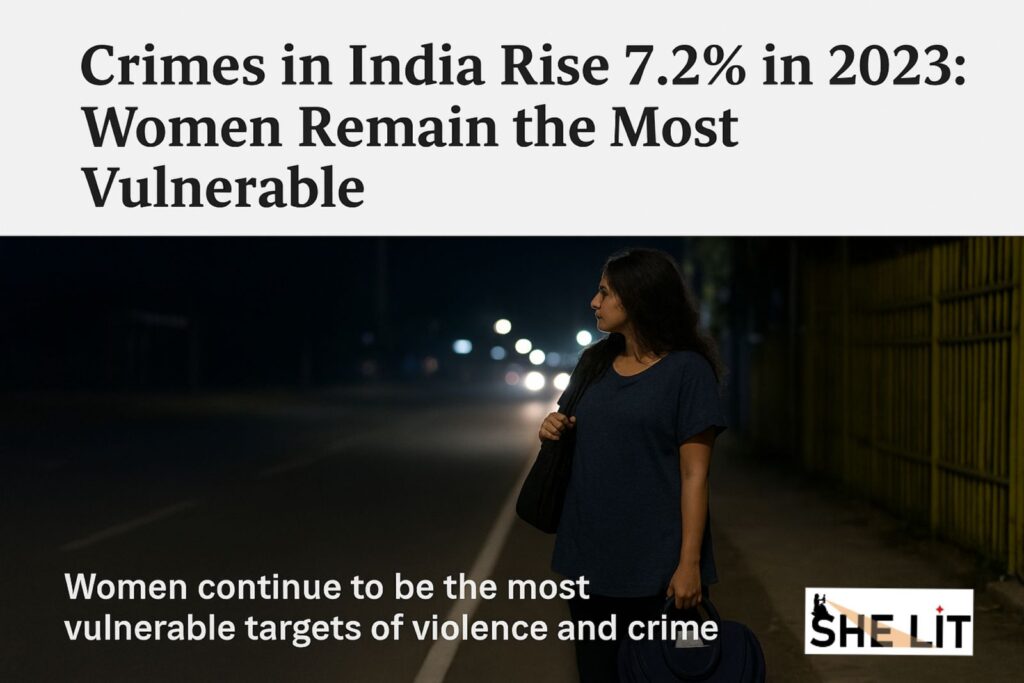According to the latest data released by the National Crime Records Bureau (NCRB), India recorded 6.24 million cognisable crimes in 2023, marking a 7.2% increase from the previous year. While this alarming rise affects the entire society, one fact remains tragically constant, women continue to be the most vulnerable targets of violence and crime.
The Stark Reality
Crimes against women : including domestic violence, sexual assault, trafficking, harassment, and cybercrimes remain disturbingly high. Despite stricter laws and growing awareness campaigns, the NCRB data underlines that women in India are still disproportionately affected by the surge in criminal activities.
The reality is not just numbers on paper, it translates into fear, restricted freedom, and an everyday struggle for women across cities, towns, and villages. Whether it’s walking home at night, commuting on public transport, or even navigating online spaces, the shadow of insecurity looms large.
Why Are Women Still Unsafe?
Several factors contribute to this crisis:
- Patriarchal mindset: Deep-rooted societal attitudes that normalize violence against women.
- Delayed justice: Long legal battles and weak enforcement reduce faith in justice systems.
- Victim-blaming culture: Survivors of violence are often silenced or discouraged from reporting.
- Insufficient safety measures: Lack of well-lit streets, safe transport, and women-friendly infrastructure.
The Cost of Rising Crime
When crimes against women rise, it impacts not just individuals but the entire nation. Women’s safety is directly linked to their freedom, economic participation, and mental well-being. A society where women live in fear cannot progress toward equality and inclusivity.
The Road Ahead: From Vulnerability to Empowerment
It is not enough to just highlight statistics. India needs urgent, collective action to ensure women’s safety:
- Stronger law enforcement with fast-track courts for crimes against women.
- Community vigilance to create safe neighborhoods.
- Awareness programs in schools and colleges to change mindsets early.
- Women empowerment initiatives that strengthen financial independence and self-defense training.
- Digital safety reforms to combat rising cyber harassment.
SheLit’s Stand
At SheLit, we believe that women’s safety is not a privilege but a fundamental right. Every woman deserves the freedom to live, work, and dream without fear. The rising crime rate is a wake-up call for all of us, policymakers, institutions, communities, and individuals to take responsibility and act.
The numbers may be grim, but change is possible when society refuses to accept violence as normal. It’s time to turn vulnerability into strength, silence into voice, and fear into power.

